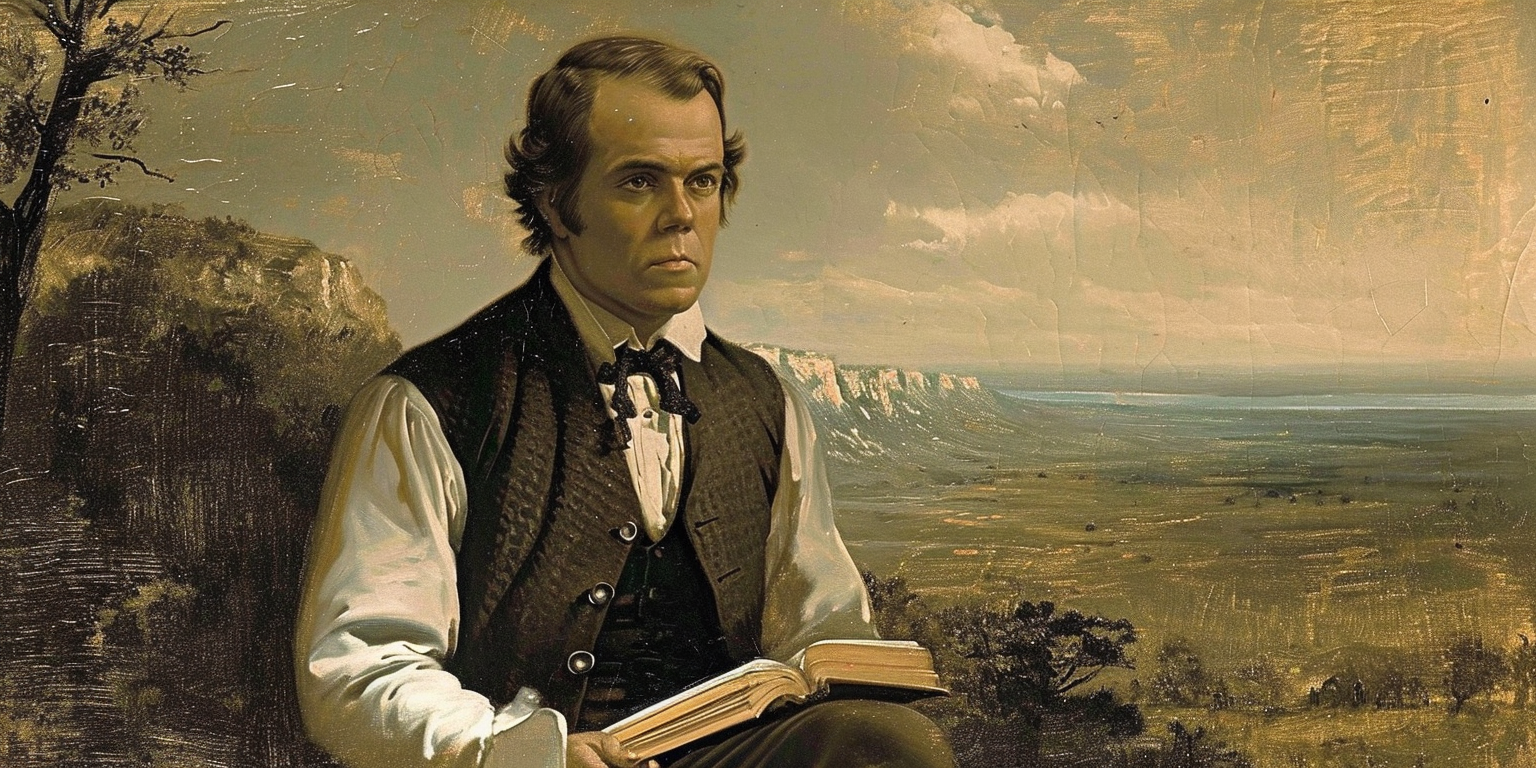In the spring of 1844, less than two months before a martyr’s death, Joseph Smith taught the Saints, “If men do not comprehend the character of God, they do not comprehend themselves.” In that same year of the Prophet’s perennial discourse on the nature of God, Elder Parley P. Pratt released a compilation of pamphlets in a volume titled An Appeal to the Inhabitants of the State of New York. The final pamphlet, Intelligence and Affection, contains gems of truth that further explicate the Prophet’s teachings on God and the nature of man.
Terryl Givens and Matthew Grow, both scholars of Latter-day Saint doctrine and history, eloquently observe the philosophical and theological contradictions Pratt’s Intelligence and Affection overcome in their book, Parley P. Pratt: The Apostle Paul of Mormonism. The authors explain:
“Proceeding from the premise that God—like all divine entities—is embodied, Pratt argued that the prejudice of Platonism and Puritanism against the bodily was groundless. Ascribing our natural affections to a fallen and corrupt nature as creedal Christians do mistakes ‘the source and fountain of happiness altogether.’ Those true mainsprings are first, our natural affections and, second, our social nature” (p. 213, emphasis added).
It is through the recognition and elevation of these two “mainsprings” that Pratt ties this earthly world with the celestial worlds; intelligence and affection, truth and love, are no longer mutually exclusive characteristics of Divinity and eternal life but are nourished and strengthened by the increase of one or the other.
Like the Platonists, Pratt perceives the Divine significance of man’s rational capacity. The desire to know, to comprehend, is a substantive part of human and Divine nature. Intelligence, Pratt explains, has its “origin in eternal, uncreated elements and, like them, must endure forever.” Thus, in the eternities, man’s faculty of reason is “no longer constrained” to a mortal tabernacle but is coupled with a glorified body. There, intelligence will “like its maker, comprehend all things.” The natural tendency to grow in intelligence finds its eternal increase and fulfillment in the heavenly spheres. Reason and contemplation, then, do not obstruct or distort man’s understanding of God but are the instruments by which such an understanding is obtained. Truly, “The glory of God is intelligence.” Truth and love, are no longer mutually exclusive characteristics of Divinity.
“In our infancy, our love is as narrow as our intellectual capacity. But as our intelligence increases, so our affection grows, till from knowing and loving our mother, we begin to know and love the circle of our immediate kindred and family.”
The young, immature child does not immediately emanate love for his family; yet, as he increases in knowledge, he increases in love, and gradually, the two grow together in a harmonious manner. Likewise, “While the mind is thus expanding and increasing in intelligence,” Pratt explains, “the affections will expand and increase in proportion, both in this life and in the life to come.” Here, Pratt illustrates a continuity between the natural and eternal world, placing an important emphasis on the experiential, agentic aspect of human life as a manifestation of God’s nature. Our life in this natural world is full of participation in the Divine nature; as we grow in intelligence, we grow in Divine love for God and His children.
We glimpse the profound truth of Intelligence and Affection in the writings of Catholic Saint Thomas Aquinas. In his theological work, Summa Theologica, Aquinas illustrated an appreciation for the natural creation that was not radically separated from the Divine. Aquinas, like Pratt, found no contradiction between the intelligence and love of God but strived rather eloquently to illustrate how the two are constitutive of God’s nature. By virtue of God’s creation, man, or the “rational creature, Aquinas explains, “has a share of the Eternal Reason, whereby it has a natural inclination to its proper act and end.” The natural inclinations to reproduce, love and care for one’s offspring, and cultivate one’s reason are not mere conditions of a fallen world but a participation in the Divine. Man, as an intelligent and loving being, is then “subject to Divine providence in the most excellent way, in so far as it partakes of a share of providence, by being provident both for itself and for others.”
Pratt and Aquinas elevate not only the natural affections but human action itself. In a modest way, the Latter-day Saint understands that his actions have an eternal significance in the ultimate sense. By virtue of our agency, we exercise our rational capacities and natural affections in ways that allow us to “partake of a share of providence.” Through this experiential, agentic participation, man can begin to understand the character of God by observing the natural affections and inclinations within and around himself. “Man,” Pratt proclaims, “know thyself, study thine own nature, learn thy powers of body, thy capacity of mind. Learn thine origin, thy purpose and thy destiny. Study the true source of happiness, and the happiness of all beings with which thou art associated.” We can more fully love here, because we have knowledge of its eternal significance.
Thus, as Latter-day Saints, we find no tension between the truth of God’s love and the love of Truth. Our participation in the Divine is enabled most fully and completely by our agentic capacity to know and to love; through our agency, we as children of God experience natural affections that, when cultivated, bring us closer to the Divine nature of our Heavenly Father, closer to Truth and Love. Indeed, we can more fully love here because we have the intelligence and knowledge of its eternal significance there. By experiencing this mutual harmony of Truth and Love, we, along with Pratt, can proclaim, “I had loved before, but I knew not why. But now I loved—with a pureness—an intensity of elevated, exalted feeling, which would lift my soul from the transitory things of this groveling sphere and expand it as the ocean.”






Subscribe To Our Weekly Newsletter
Stay up to date on the intersection of faith in the public square.
You have Successfully Subscribed!